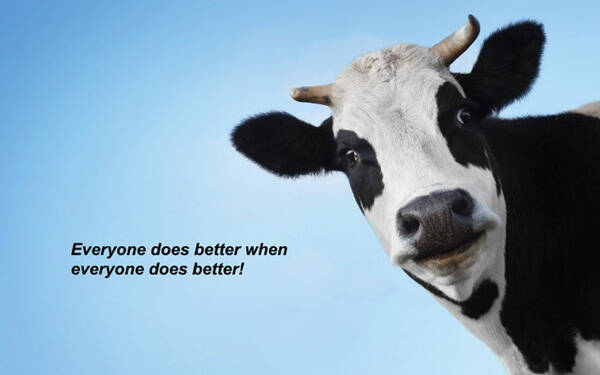Old Fashioned America and The “Well Being” State

“If you don’t read the newspaper, you’re uninformed. If you read the newspaper,
you’re misinformed.” Mark Twain
This quip accurately describes the results of today’s for-profit news media and cable TV. Americans are uniformed and misinformed on many topics. One example of misinformation is life in the “socialist” Scandinavian countries. The media portray them as welfare states that have nothing to teach us. These countries supposedly suffer from high taxes and oppressive bureaucracies that kill initiative, free enterprise, and personal freedom.
A new book, “The Nordic Theory of Everything: In Search of a Better Life” by Anu Partanen challenges these misconceptions. Ms. Partanen is a professional journalist who moved to the United States from Finland to marry an American. She writes a personal account of her experiences, culture shock, and hassles dealing with the life in America vs Finland. The book contrasts the impact of differing social support systems for maternity, child rearing, education, health care, and retirement. She debunks the belief that that Nordic countries are socialist “nanny states.” She makes the claim that Americans have more unhealthy “dependencies” and that Nordic citizens enjoy more individual freedom and independence than we do.
She says, “All the advantages I gave up when I moved to America- universal public health care, universal affordable day care, real maternity benefits, high-quality free education, taxpayer funded residences for the elderly ... were not gifts from the government to make me a servile dependent on the state’s largess. Nordic societies provide their citizens- all their citizens, and especially the middle class- with a maximum of autonomy from old fashioned traditional ties of dependency...” She says this saves everyone money in addition to simplifying their lives, creating more personal security, equal opportunity, and personal freedom.
The book is a good read and offers a number of insights well worth considering given the current efforts to alter Social Security, repeal the Affordable Care Act, and cut funding for other social programs. The reactionaries currently in control believe in returning America to a mythical time of former greatness. But our actual past (and present) has a fragmented and inconsistent record of supporting children and families. It hardly qualities as “great.”
Ms. Partanen makes the claim that the U.S. is actually “old fashioned” and not prepared for the 21st century with its public policy. She says we have a modern society with a “contemporary free market system, but an antiquated society in leaving it to families, and other community organizations, to address the problems the system creates.” The conflict is not between big vs small government but between “the past and the future.”
We need to dispel the misconceptions about the “S” word. The Nordic country’s economies are not Russian style state socialism. All the nordic countries have free enterprise capitalist economies with private, for-profit businesses and large corporations. As do most countries, including the U.S., they have a mixture of public, private, and collective ownership that include for-profit and non-profit organizations. The Nordic counties are home to a number of major multinational corporations including Volvo, Saab, IKEA, Nokia, Electolux, and Ericsson to name a few you may recognize. Having government provided social insurance and social support programs is not synonymous with the government ownership of the means of production. Social programs do not define a socialist, communist, or capitalist economy. The standard media spin is inaccurate.
Ms. Partanen sees life in America as having many relationships that create unnecessary and harmful dependencies that don’t fit with modern society and limit individual success. To a large degree Americans depend on the circumstances of their parents to determine their future. They depend on parents (or crippling debt) to get an education. Later they depend on a good job (or a spouse) for healthcare. Retirement or a decent old age can depend on many variable and unstable factors including support from children. In Nordic countries every child has an equal chance to succeed. Good maternity benefits, affordable child care, free public education, universal healthcare allow every one to get a good start in life. She calls this the “well being” state.
Everyone benefits in the Nordic system. Ms. Partanen says, “Unlike in some bogeyman welfare state” participation in the “well being state” does not require you to sacrifice your own advancement to help the unfortunate or lazy. “It supports your own autonomy from the accident of birth and dependency on parents, employers, spouses, and children.” It creates real opportunity for all to succeed based on individual ability.
Healthcare is a good example of the contrast. Regarding her experience with health insurance in America, she says “I longed for a different kind of freedom- the freedom of knowing that the Finnish health care system was always there for me regardless of my employment status. I wanted the freedom of knowing that all the doctors were good and that their goal was...my best interests, rather than generating profits.”
She points out that the Nordic system is more efficient and, in many cases, costs LESS than in the U.S. Yes, they pay for it with taxes. But when all the taxes, fees, insurance premiums, debt, and out-of-pocket costs are figured, Americans pay just about as much for a lot less from our fragmented, inadequate social policies.
Americans see government as separate from themselves. Nordics see government as created by them and for them. We have big government that primarily supports the military and the 1%. They have smart government that provides the opportunity to live a healthy, safe, economically secure, upwardly mobile life for everyone.
The Nordic countries are not perfect. They are not utopias. They have all the same economic and social problems as every country. But they do have a rational foundation of supporting all their people and providing real equal opportunity. We could learn from their experience. We certainly should not reject their experience based on ideology or misinformation.
